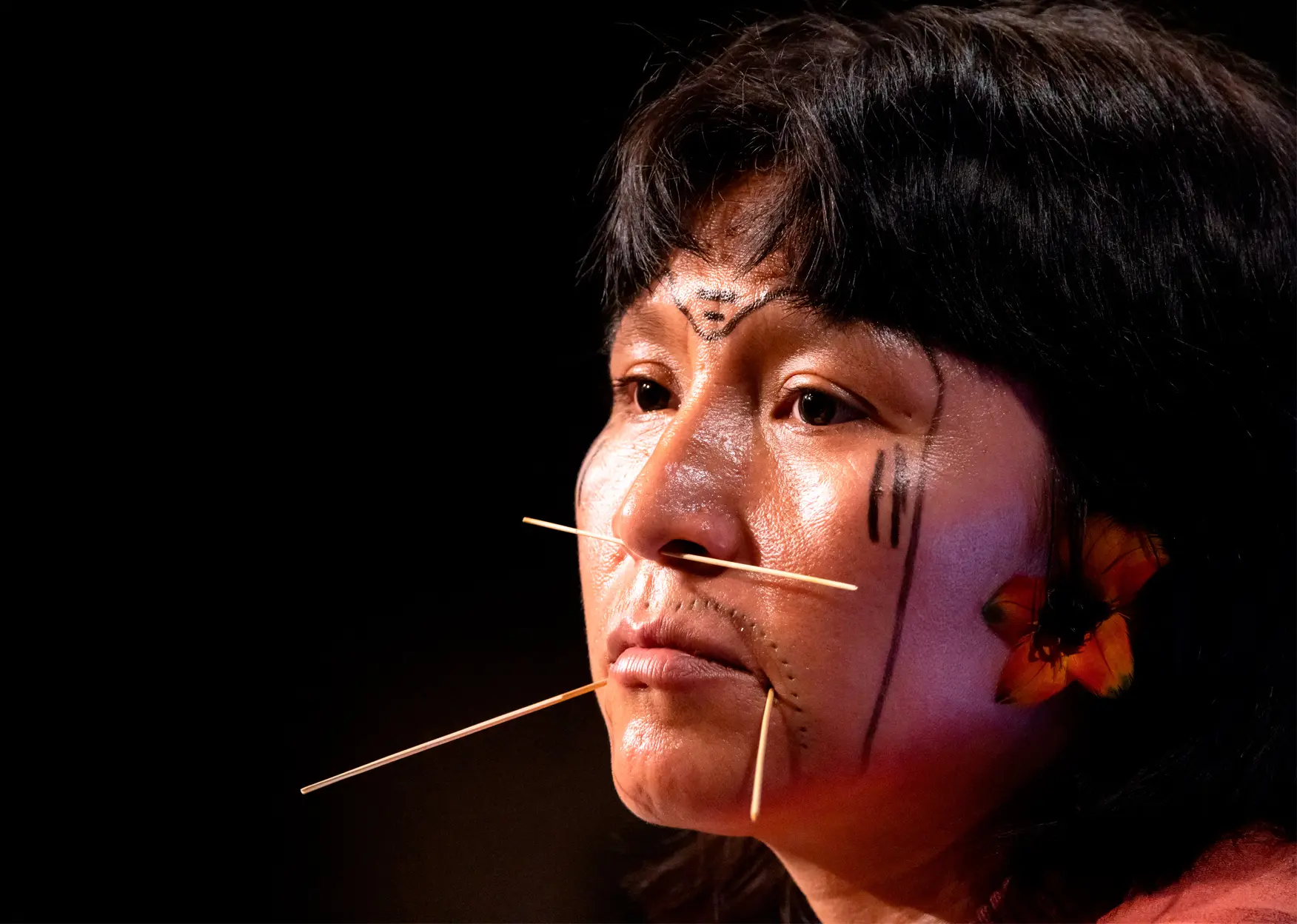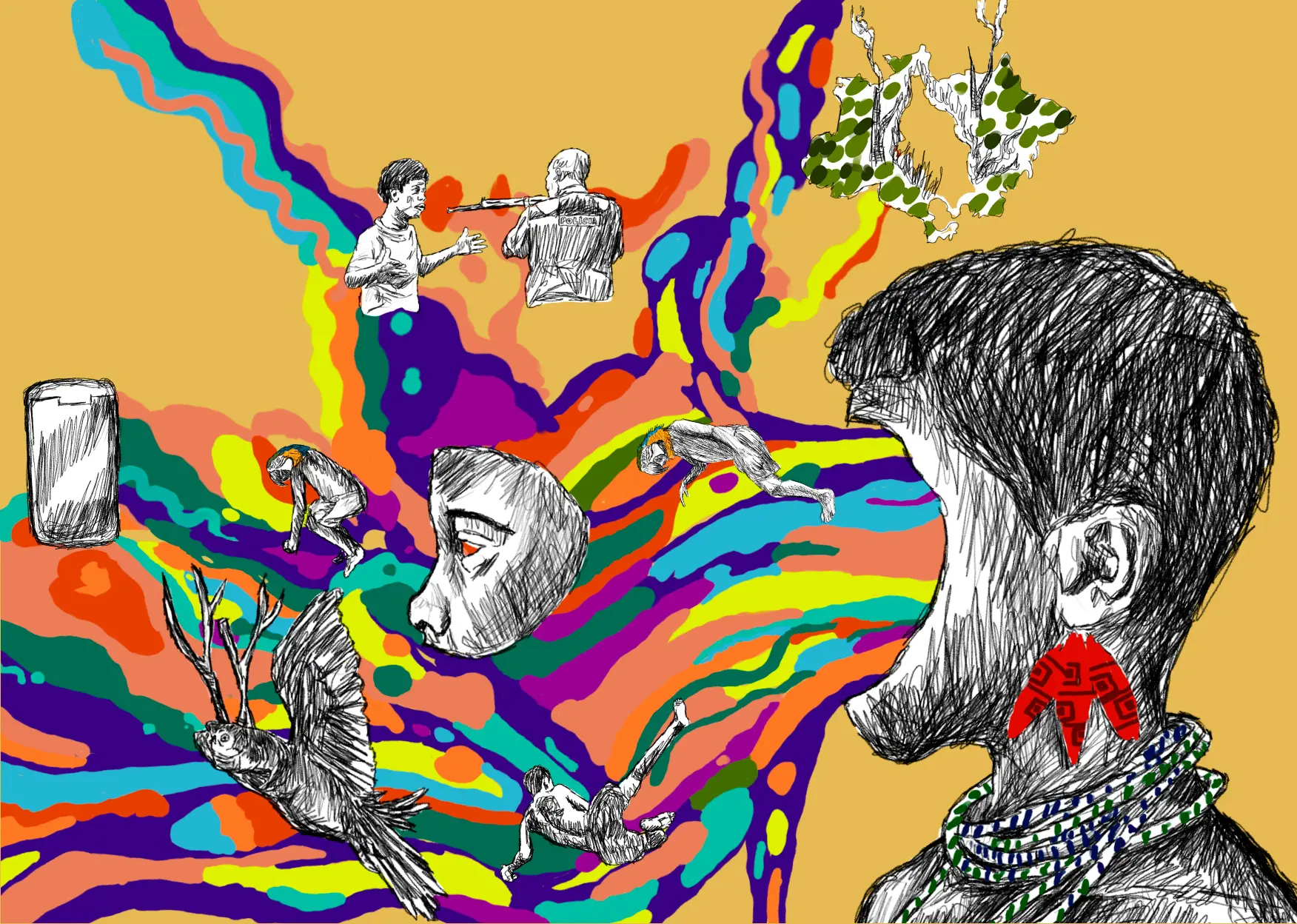The Free Land Camp, the annual manifestation of the indigenous struggle in Brazil, held its 19th edition in 2023. The event brought together indigenous youth groups from different peoples who organized themselves to demand Federal government policies including the establishment of a Special Office for Indigenous Education within the Ministry of Education, along the lines of the one that already exists in the Ministry of Health. The indigenous students complained of the prejudice they suffer and the countless difficulties they face in completing their education in precarious student housing, without any federal or state support. The wave of mercury contamination as a result of illegal mining operations on indigenous lands, which also has a brutal impact on the children, is another focus of concern for the young people, who want to look after the wellbeing of future generations in the villages.
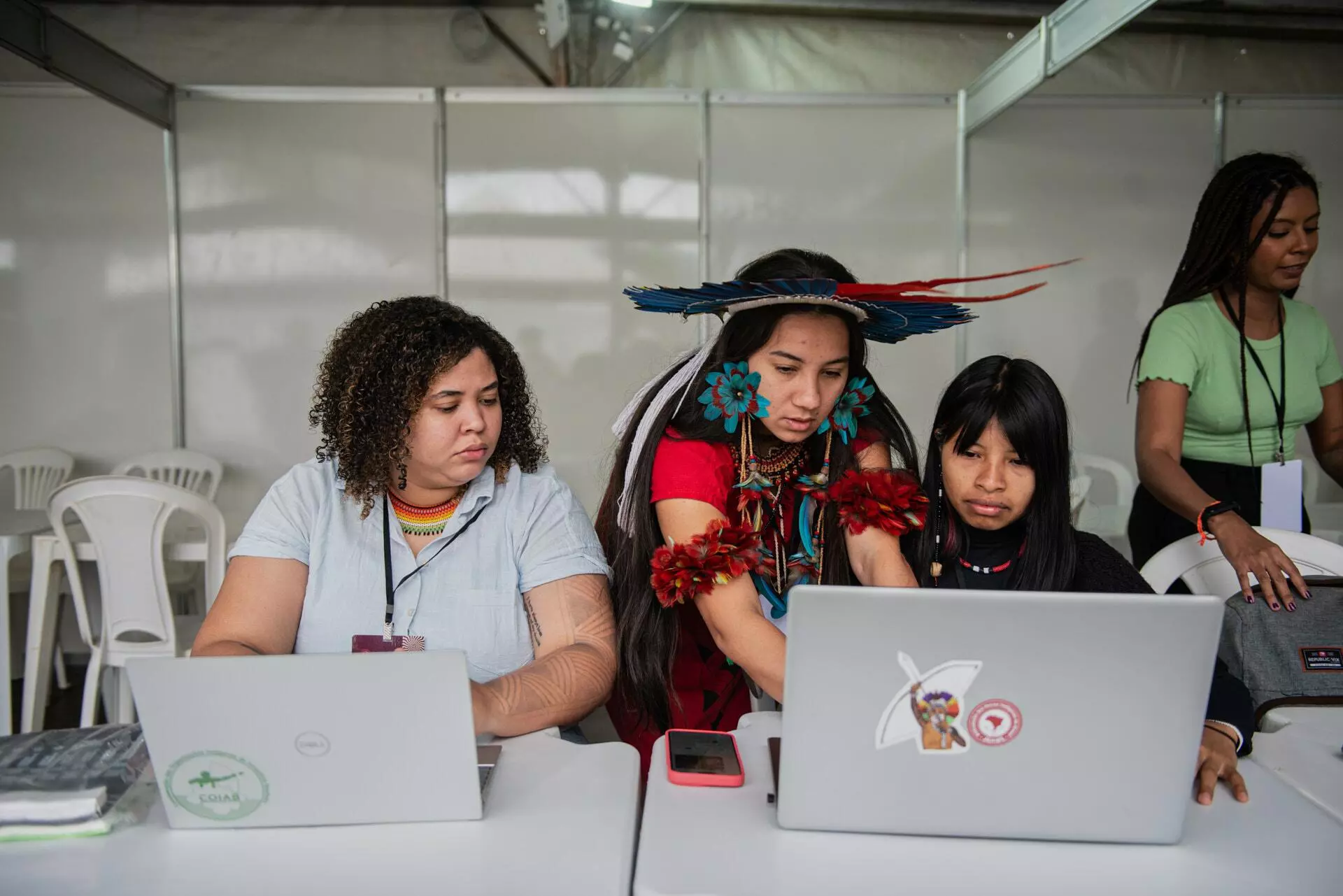
Samela Sateré Mawé,a young activist, influencer and communications coordinator (center) the Articulation of Indigenous Peoples (Apib) at the 19th edition of the Free Land Camp (ATL). Samela is also a SUMAÚMA collaborator. Photo: Matheus Alves/SUMAÚMA
In communications, audiovisual shows, education sessions, and LGBT+ collectives, groups of indigenous youth developed “strong identity” projects that aimed to show how future generations understand the significance of their culture and respect their ancestry. The youths are also active in the political debate regarding the demarcation of indigenous lands, which they view as fundamental to ensure their future as well as that of their relatives. The Free Land Camp also saw open debates about LGBT+ issues in the indigenous movement. Trans, bisexual, and transvestite indigenous people spoke about the prejudice they suffer within their own villages and called for an end to violence and racism.
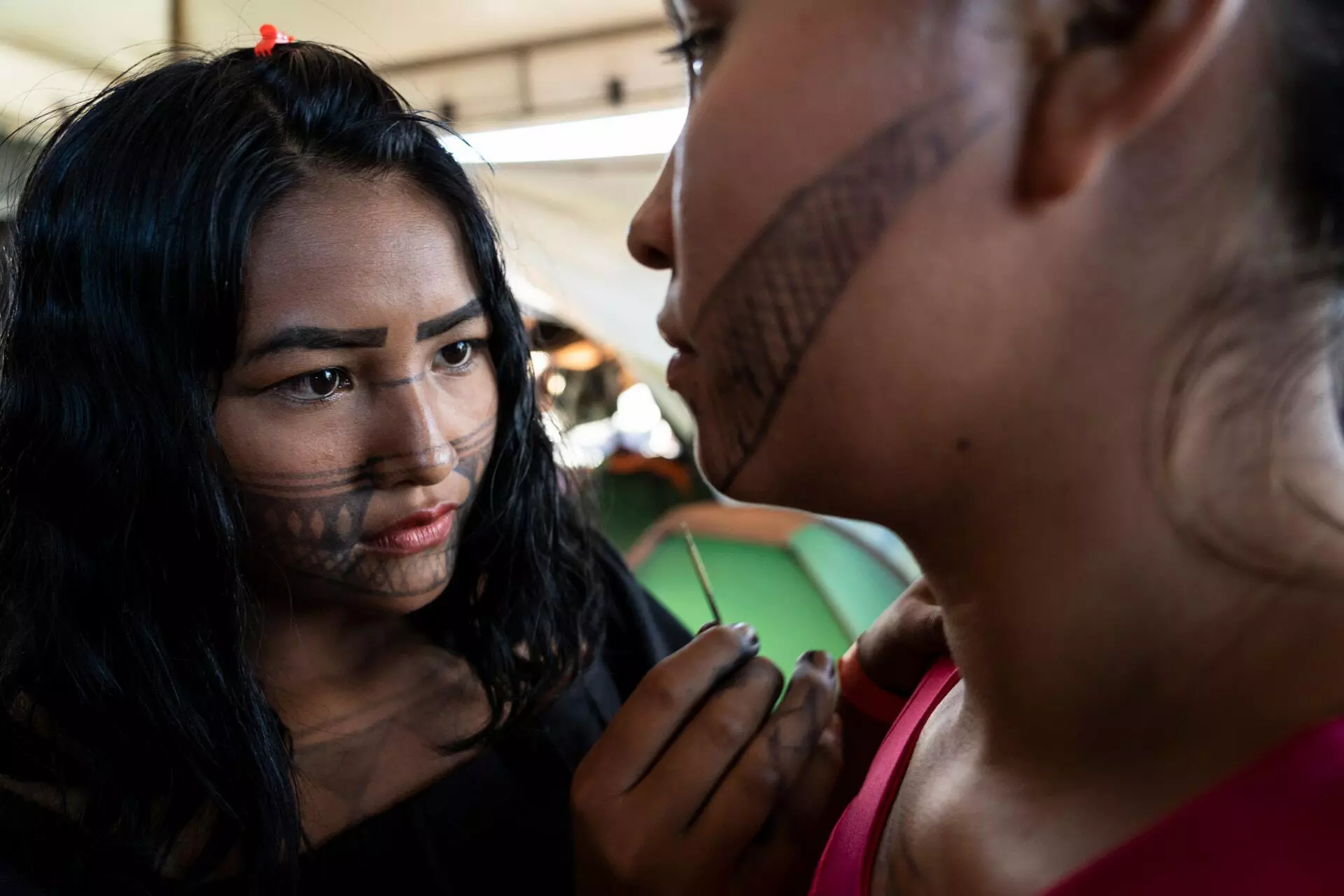
Ana Cieide Karu paints Kauane Kaba Munduruku’s face with genipap, in the morning, on the third day of the Free Land Camp (ATL), in Brasilia. Indigenous peoples declared a climate emergency during the gathering. Photo: Fernando Martinho/SUMAÚMA
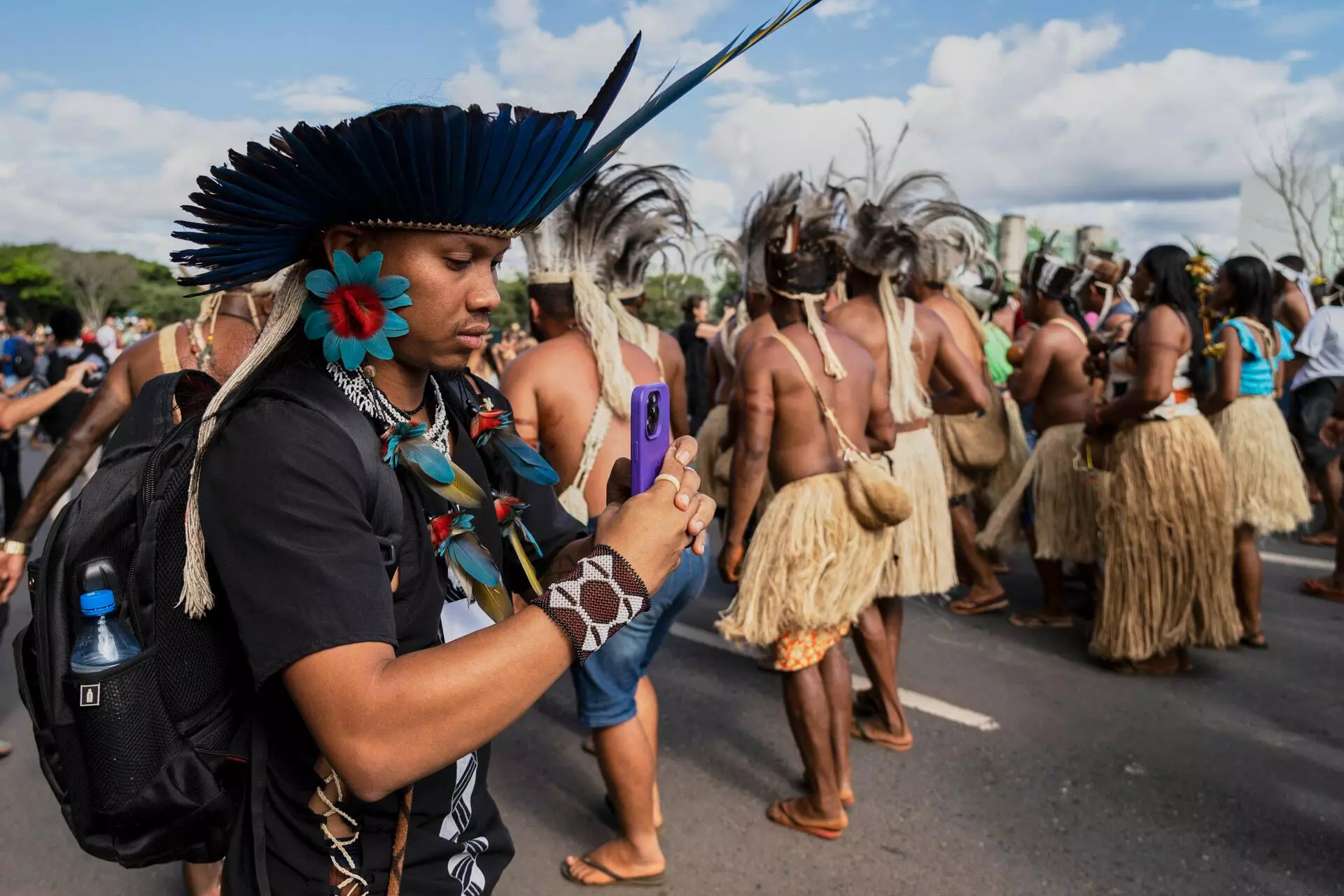
Tukumã Pataxó, indigenous communicator and YouTuber, from the communications team of the Articulation of Indigenous Peoples (Apib), records the first rally of the 2023 edition of the Free Land Camp (ATL), which was focused on opposition to the anti-indigenous bills in Congress. Photo: Fernando Martinho/SUMAÚMA
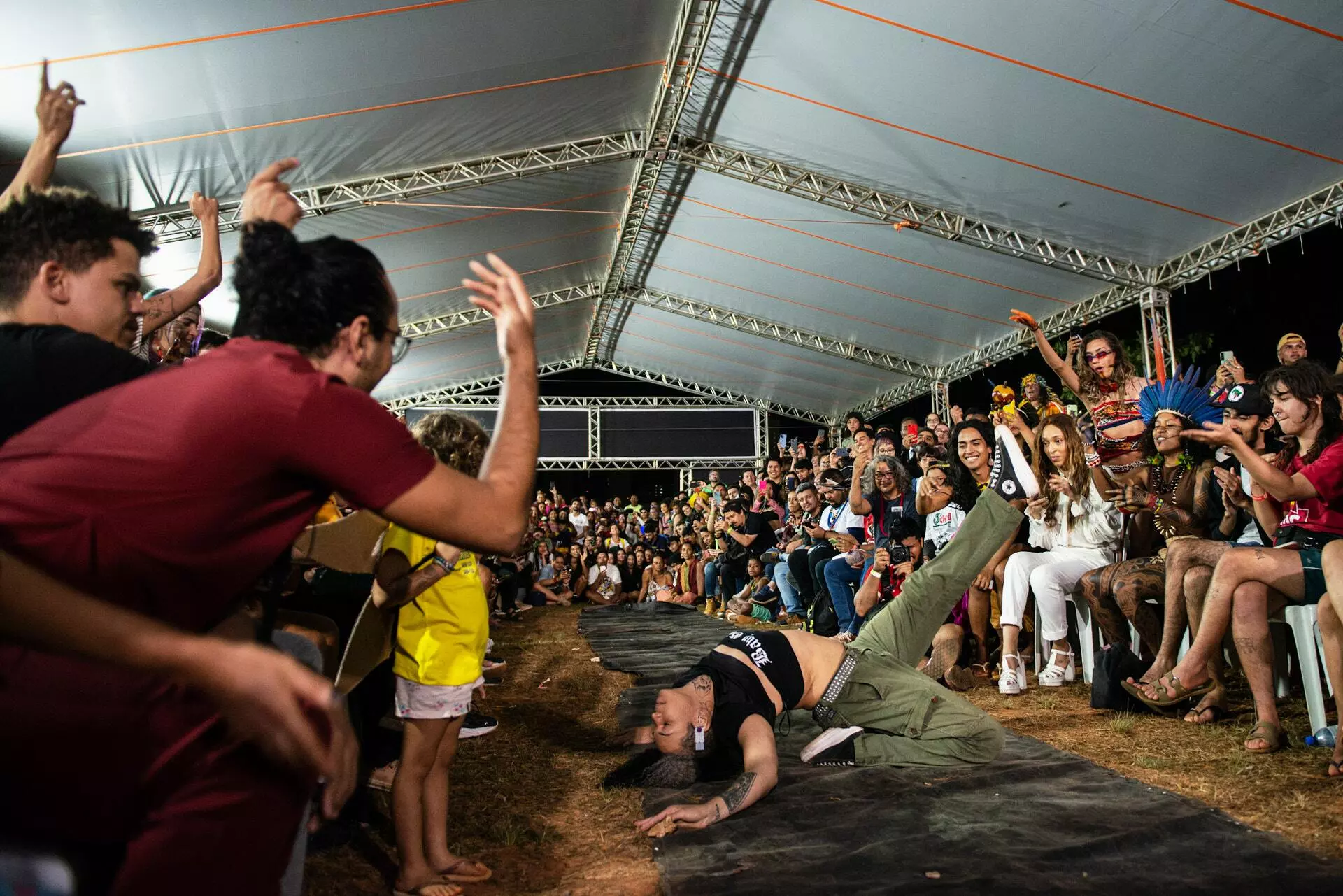
Brazil’s first indigenous BallRoom, at the Free Land Camp (ATL) 2023, which was also attended by federal deputy Erika Hilton (of the Socialism and Liberty Party for the State of Sao Paulo). The BallRoom is a kind of prom, a scene linked to LGBT+ and black culture, which originated in the United States. The objective is the free manifestation of bodies, in an autonomous way. Photo: Matheus Alves /SUMAÚMA
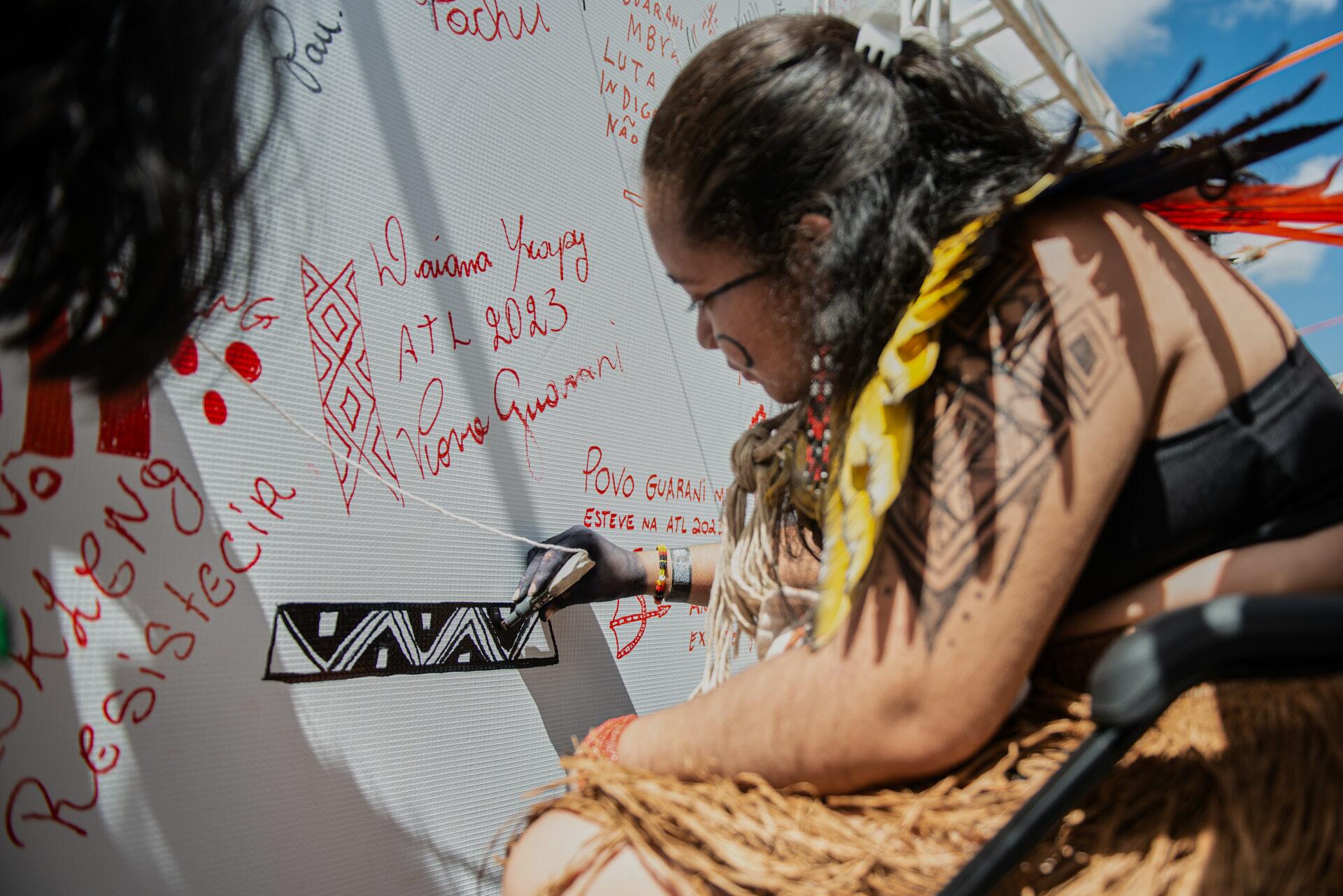
The young indigenous woman Itocovy Pataxó Hã-hã-hãe illustrating a panel with indigenous graphics, on the second day of the 19th edition of the Free Land Camp (ATL). Photo: Matheus Alves/SUMAÚMA
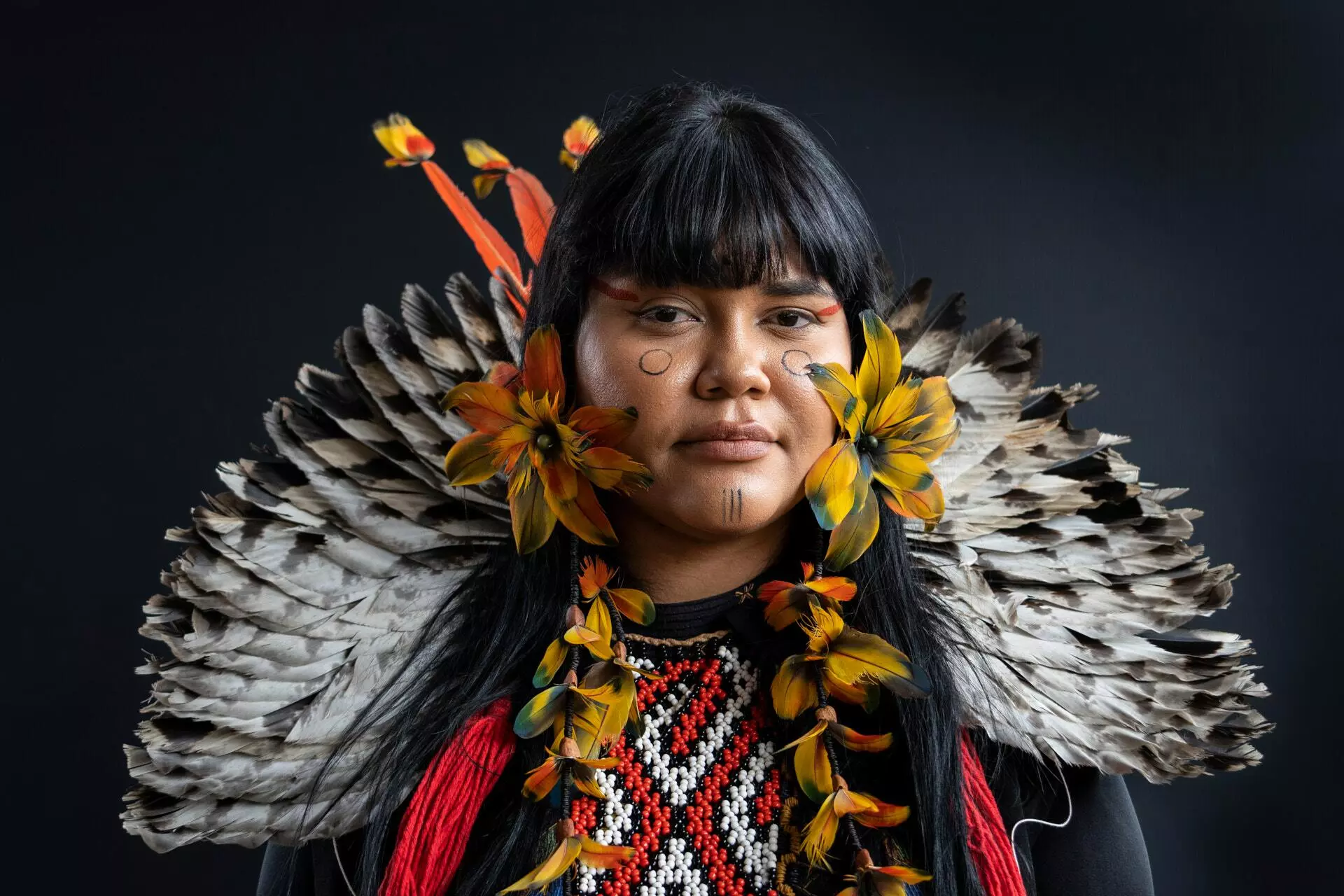
Thaline Karajá, indigenous environmental activist, singer and actress. Photo: Fernando Martinho / SUMAÚMA
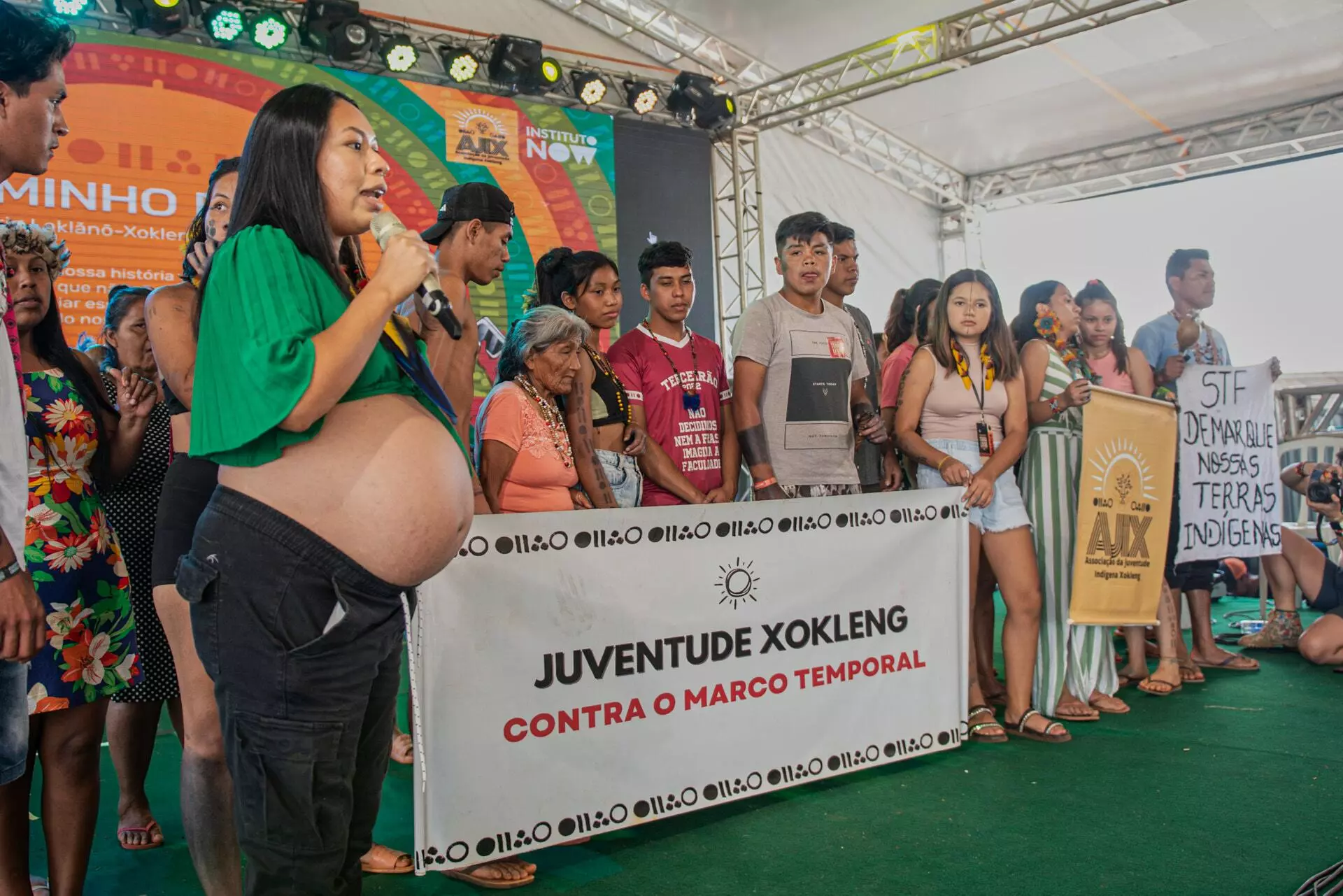
Youth of the Xokleng people during the plenary session ‘Indigenous Youth in the struggle for identity strengthening’. The group has been active for five years and is directly involved in the debate regarding time limitations on the demarcation of indigenous lands. This banner was held up by President Lula on the final day of the Free Land Camp (ATL), when he signed the demarcation of six indigenous lands. Photo: Matheus Alves /Sumaúma
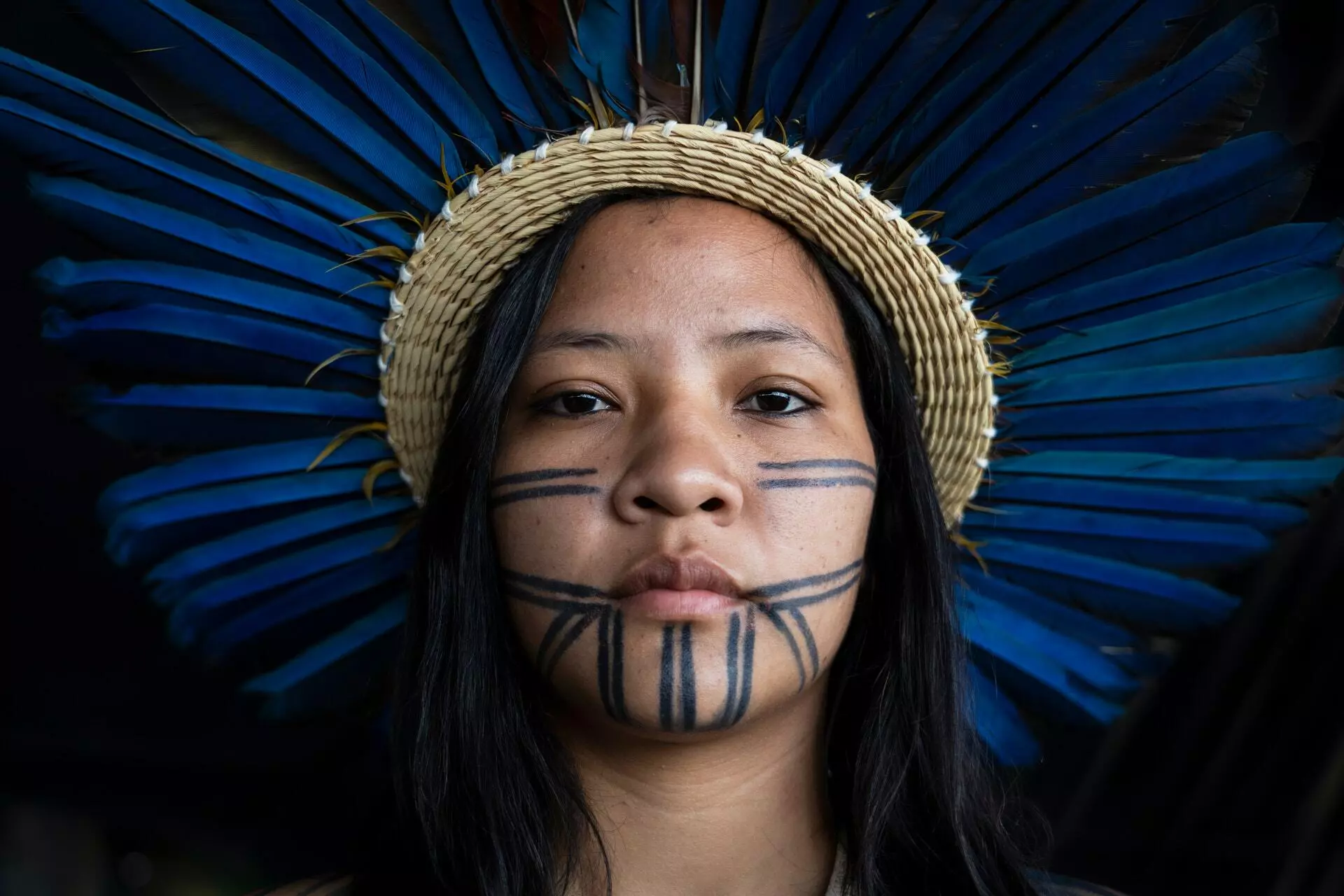
Marciely Ayap Tupari, current coordinating secretary of the Coordination of Indigenous Organizations of the Brazilian Amazon region (COIAB). Photo: Fernando Martinho/SUMAÚMA
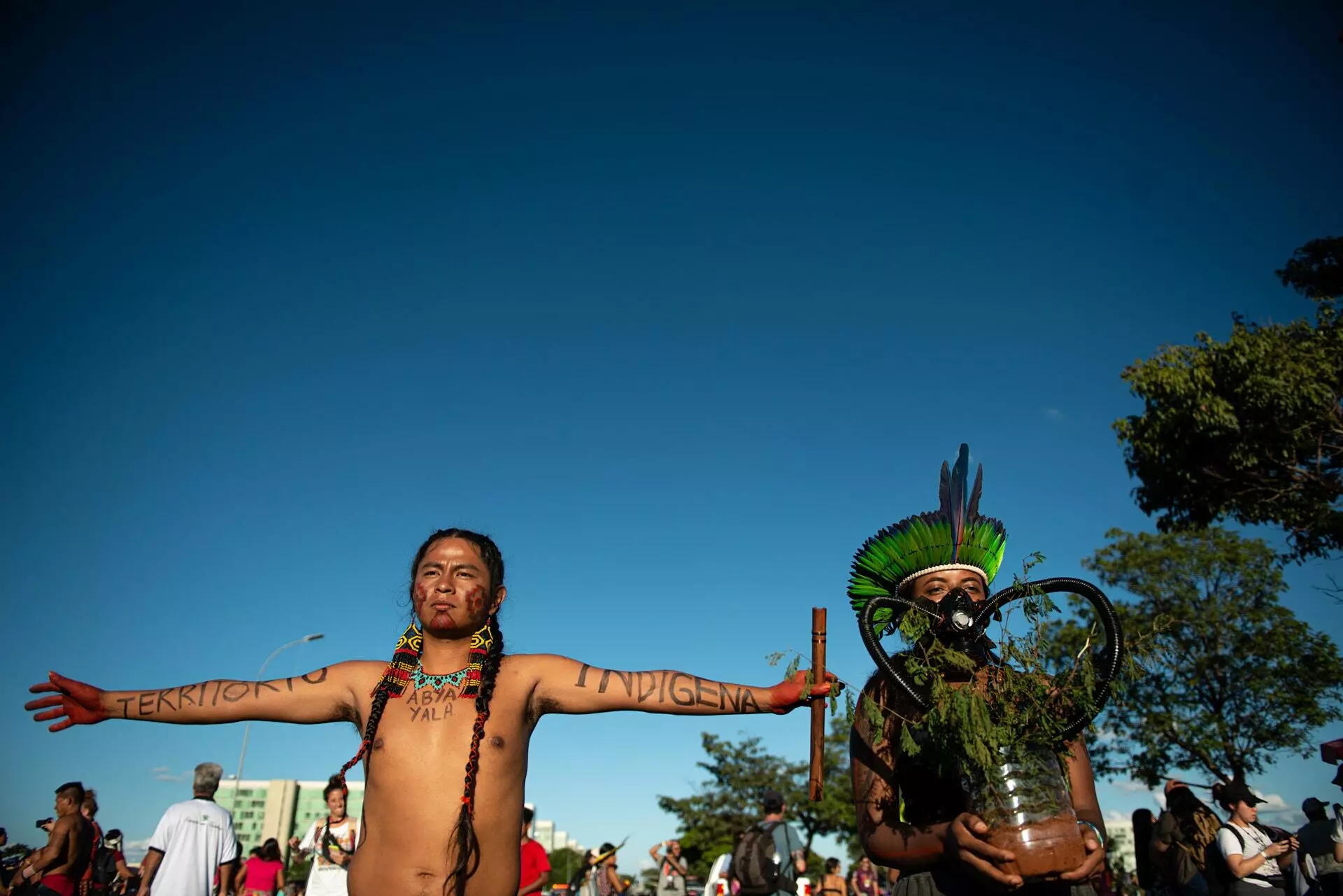
A young indigenous man with the expression Abya Yala tattooed on his body. This expression is used by native peoples to defend their territories and self-determination. In the Kuna language, it means Living Land, Mature Land, Land in Bloom. The young people use the expression ‘territory-bodies’ to defend the recognition of their lands. Beside him, an indigenous woman wears a gas mask with filters attached to a plant pot during the rally at which indigenous peoples declared a Climate Emergency. Photo: Matheus Alves/SUMAÚMA
Spell check (Portuguese): Elvira Gago
Translation into Spanish: Meritxell Almarza
English translation: Mark Murray
Photography editing: Marcelo Aguilar, Mariana Greif and Pablo Albarenga
Page setup: Érica Saboya

